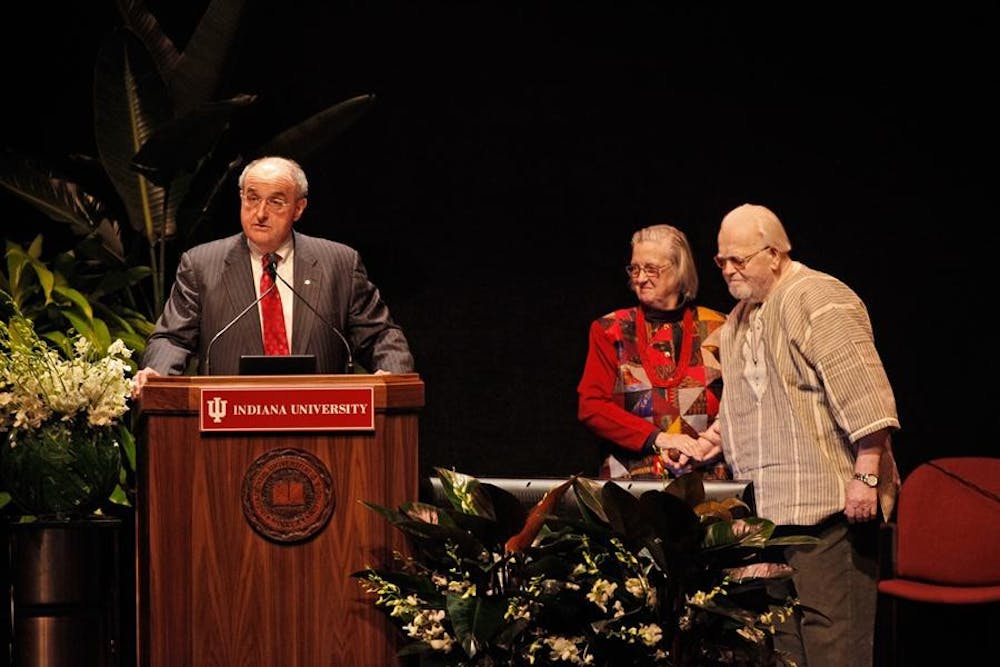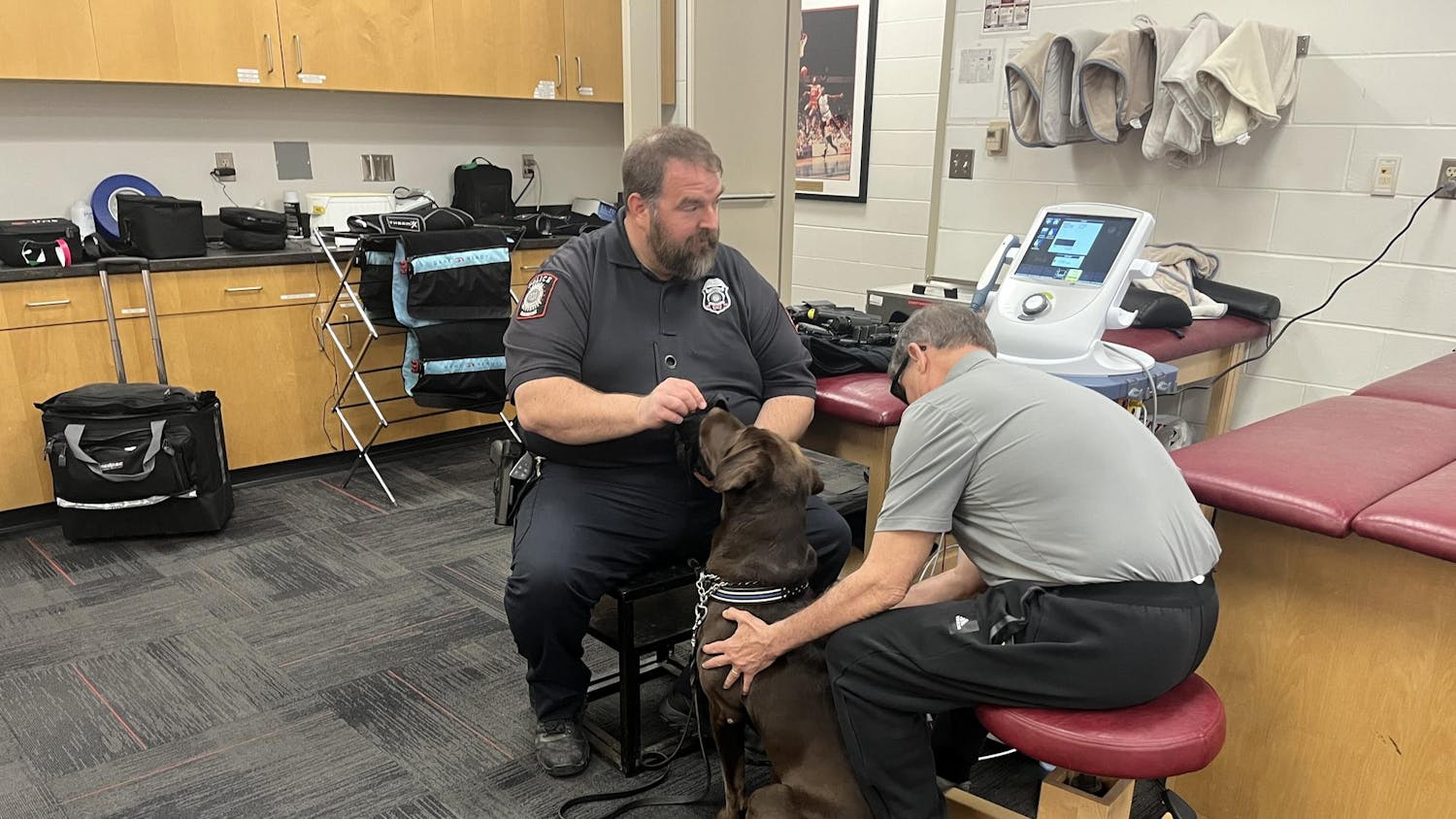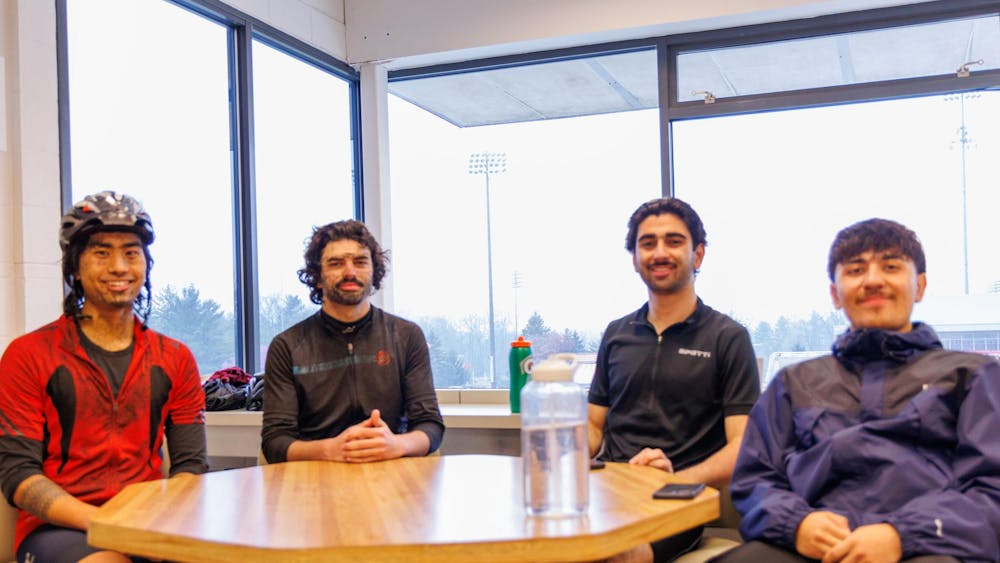When Vincent Ostrom took a position at University of California, Los Angeles in the late 1950s, he likely didn’t realize that one of his Ph.D students would become the first woman to ever win the Nobel Prize in economics — or that the same woman would one day be his wife of nearly 50 years.
Vincent, distinguished IU professor and the husband of Nobel laureate Elinor “Lin” Ostrom, died Friday, less than three weeks after his wife died of pancreatic cancer. He was 92.
“Vincent’s death, especially coming so soon after his wife Lin’s passing, is an inestimable and tragic loss to the university and to the broad fields of political theory, social-science and policy-based interdisciplinary research,” IU President Michael McRobbie said in a statement Saturday.
Vincent was his wife’s biggest supporter, McRobbie said, but Elinor was always quick to point out the effect her husband had on her own success.
He was born Sept. 25, 1919, in Nooksack, Wash. His parents were recent immigrants from Jamtland County, Sweden.
He grew up on a farm where his family domesticated minks and sold the animals’ pelts. After graduating high school, he earned a political science degree from UCLA.
In 1943, while earning his M.A., Vincent began teaching at Chaffey Union High School in Ontario, Calif.
It was here that he made observations that not only created a foundation for his master’s thesis, but also the work his wife would later dedicate her career to.
During the two years he taught in Ontario, Vincent noticed that citrus-growing smallholders created a system of land and water rights that provided what the farmers needed to sustain the farms’ incomes. The community also created an endowment for the local high school and a planned college.
In short, he realized that a group of people with common interests and needs could create their own systems and institutions to achieve complex objectives — without any outside governance.
“Lin studied the way small communities were able to govern themselves, and Vincent’s understanding was really a foundation on what she was doing,” said Michael McGinnis, director of the Vincent and Elinor Ostrom Workshop in Political Theory and Policy Analysis.
Vincent earned his M.A. in 1945 and a Ph.D in 1950. He taught at the University of Wyoming and the University of Oregon before returning to UCLA as an associate professor, where he met Elinor.
The couple married in 1963. A year later, he accepted a full professor position at IU.
Elinor joined him as a visiting assistant professor before eventually becoming an associate professor in the department of political science.
An expert on democratic governance, Vincent’s list of accomplishments is long.
He pioneered work on polycentric governance, helped draft Article VIII on Natural Resources of the Alaska Constitution and consulted as a member of resource management commissions in three different states.
In 1973, he cofounded what some say is his most lasting legacy: the Workshop in Political Theory and Policy Analysis.
The workshop brought together some of the best minds in political science and economics and encouraged a collaborative style of transdisciplinary work called the “Bloomington School.”
It was at the workshop, located in a beige house off a brick street behind Collins Living Learning Center, that Vincent proudly watched his wife accept her Nobel Prize on closed circuit television in 2009.
His health and hearing were fading and, already in his late 80s, traveling to Stockholm would have proven difficult.
“If he could have, he would have gone with her,” McGinnis said. “But it was so nice that he was able to watch her. I doubt he could hear her, but he could see her.”
Even near the end of his life, when his caretakers brought him by the workshop, Vincent would point out Elinor’s photographs and awards on the wall.
“He was just very, very proud,” McGinnis said.
James Walker, an economics professor at IU who has known the Ostroms since 1986, said the respect was mutual, citing the dedication page in Elinor’s most famous book, “Governing the Commons.”
“To Vincent,” it reads, “for his love and contestation.”
“It tells you they had a very loving relationship but they also had one as academics,” Walker said. “They questioned each other and pushed each other.”
Their celebrated academic partnership, which often saw them working side by side for 16 hours a day, sometimes eclipsed the human side of their relationship — that of a devoted married couple that loved to get out of the office.
“They loved adventure and loved to travel,” Walker said.
The couple built most of their own furniture with help from a local craftsman,
Walker said. They also built a cabin on Lake Huron’s Manitoulin Island, where they spent their summers.
When Vincent’s health continued to deteriorate and his wife’s popularity continued to rise, Elinor would often have to travel without him. Even when he could no longer communicate very well, he would ask about his wife, McGinnis said.
“Where ever she was in the world, she’d get a message to him every day,” McGinnis said.
In 2012, the workshop was renamed to honor the Ostroms’ commitment to the program and each other.
The morning of June 12, Vincent was brought to his wife’s bedside to say goodbye. She had lost a six-month battle with pancreatic cancer.
Just more than two weeks later, Vincent died, too.
“They remained a very loving couple,” McGinnis said. “He was quite a guy, and they were just a sweet couple.”
Shortly after death of wife, Vincent Ostrom dies

Get stories like this in your inbox
Subscribe





